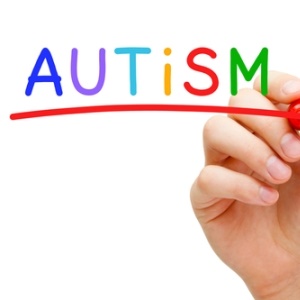
Parents' ages may play a role in a child's risk of developing autism, a new study suggests.
No cause-and-effect relationship
Past research has already reported a higher risk of autism among children of older parents, as was found in this new paper. But this study also suggests that children of teen parents and of parents with a big age difference have higher odds of developing an autism spectrum disorder.
"Your age and the age of your partner matters, but older age, younger age or a large gap in age is not deterministic," said study author Sven Sandin, a statistician in the department of medical epidemiology and biostatistics at Karolinska Institute in Sweden.
Read: What is autism?
"Although risk for autism may increase when parents are older or have a gap in ages, most of the children born to such couples will [not develop autism]," he said.
Both Sandin and an independent autism expert noted that although the study found an association between parents' ages and autism risk, it doesn't prove a cause-and-effect relationship. They also both said that the overall risk of autism was low, regardless of parents' ages.
These findings were reported online in the journal Molecular Psychiatry.
Autism spectrum disorders include a range of developmental brain conditions characterised by communication and social difficulties and repetitive behaviours, according to the U.S. Centres for Disease Control and Prevention. The CDC estimates that one in 68 children has an autism spectrum disorder.
Genetic mutations from ageing sperm
The study authors compared almost 31,000 children with autism to nearly 6 million without autism in five countries. Those countries included Australia, Denmark, Israel, Norway and Sweden.
Similar to the findings of past research, this study found the risk of having a child with autism was 66 percent greater in fathers over 50 years old compared to fathers in their 20s. The risk for children of fathers in their 40s was 28 percent higher than for children of fathers in their 20s.
Read: Semen quality drops at 35
Compared to moms who had children in their 20s, children of women in their 40s were 15 percent more likely to have autism. Children of teen moms were 18 percent more likely to have autism versus children born to moms in their 20s, the researchers found.
Risk for autism went up more if both parents were in their 40s or older. The risk also went up even more if the parents' ages differed by at least 10 years. The age gap risk showed up especially among fathers between 35 and 44 with a partner more than 10 years younger, and among mothers in their 30s with a partner at least 10 years younger, the study found.
Past research finding a higher risk of autism among children with older fathers has suggested that genetic mutations from aging sperm may be related to development of autism, but this study raises more questions, Sandin suggested.
"This study cannot determine what the mechanisms are," Sandin said. "But it does suggest that degrading sperm is not likely to be the only mechanism that explains the relation between age of parents and autism. Other mechanisms are likely to be involved."
Genetic mutations may be responsible
Dr. Andrew Adesman, chief of developmental and behavioural paediatrics at Cohen Children's Medical Centre of New York in New Hyde Park, agreed. "The increased risk of autism spectrum disorders with advanced paternal age suggests that genetic mutations may be responsible for this increased risk."
But, he added, "It is unclear why there is an increased risk of autism spectrum disorders in young moms or in couples with a big age difference."
It's important to remember that this study cannot show that a parent's age causes autism, said Dr. Glen Elliott, chief psychiatrist and medical director of Children's Health Council in Palo Alto, California.
"The possibility that large differences in age between parents may independently contribute to an increased risk of autism is novel and hard to explain," Elliott said. "If the finding holds up, it is a prime example of correlation not being the same as causation because it almost certainly stands in for some other yet-to-be-determined factor."
Read: Antioxidants tied to older men's sperm quality
For example, Sandin pointed out that the researchers "cannot entirely rule out that factors associated with socioeconomic status are related to autism risk and with age differences between the couples," even though no evidence suggests that socioeconomic status is related to autism risk in these countries so far.
These findings increase knowledge about the disorder and offer new directions for research, Sandin said.
"The key to keep in mind is that these are relative risks and entail a very large number of subjects," Elliott said. "The effect of age may indeed, for reasons yet to be established, increase the absolute risk of a couple having a child with autism, but that risk still remains relatively low."
Read more:
Image: Autism from Shutterstock




 Publications
Publications
 Partners
Partners















